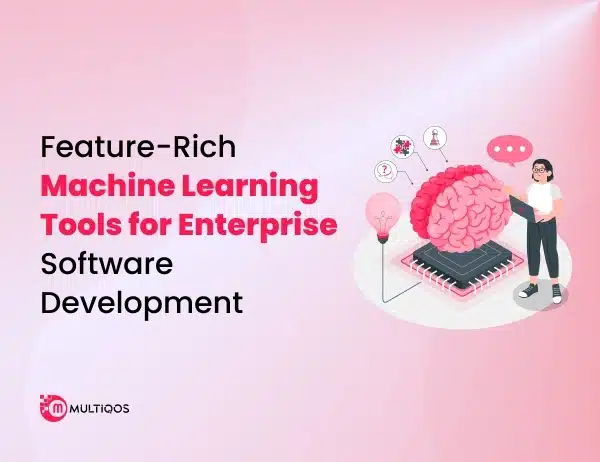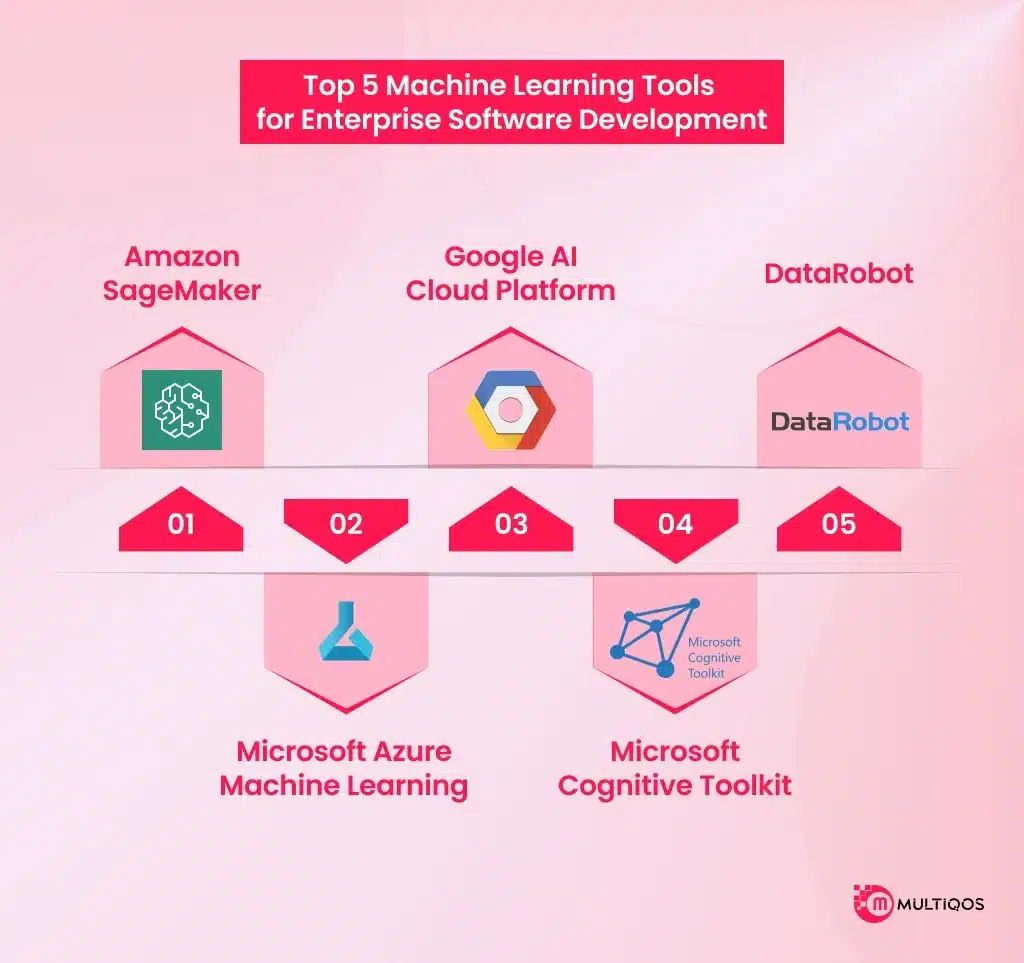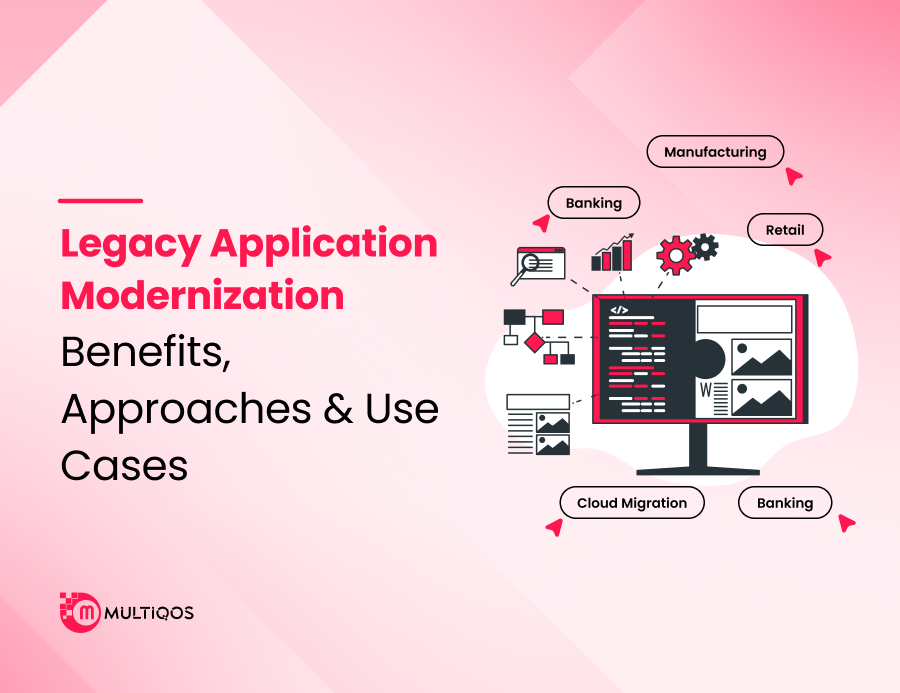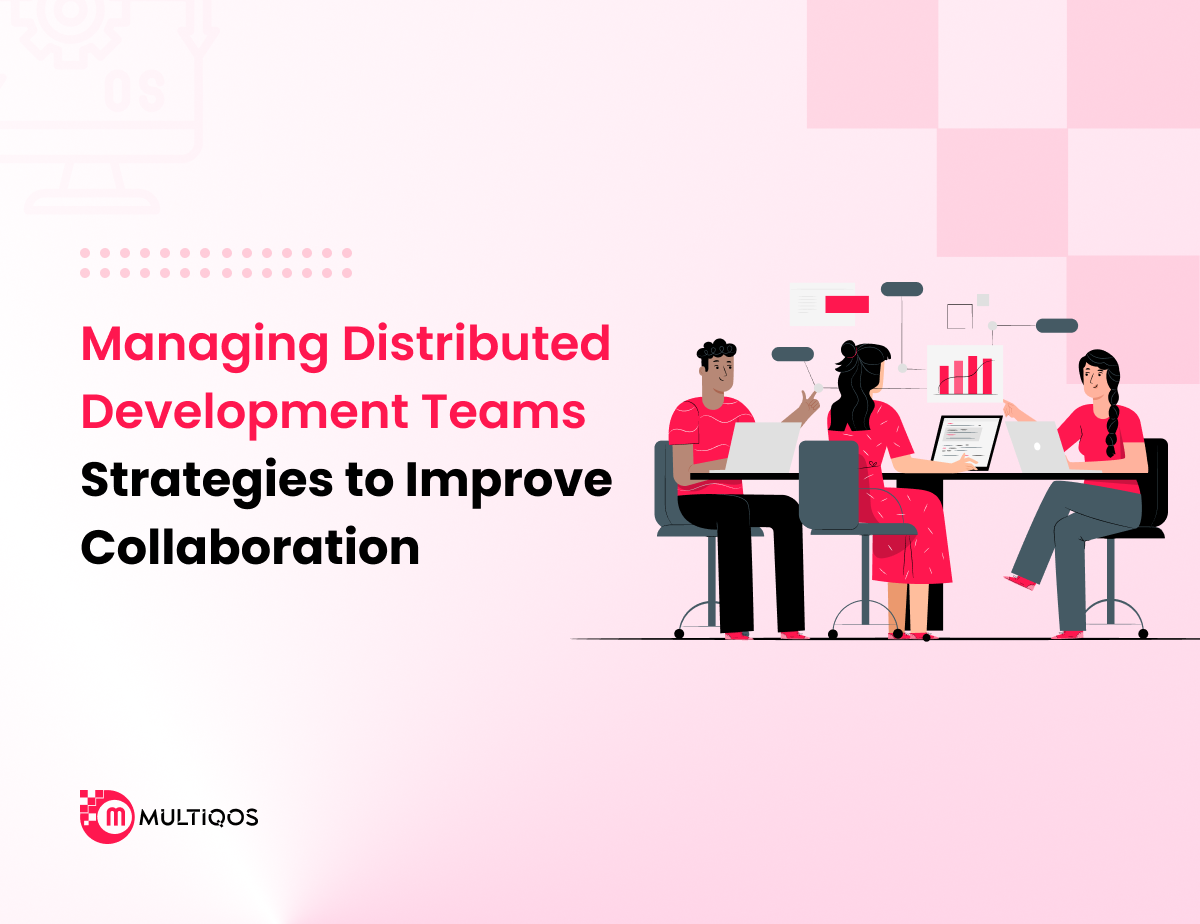Feature-Rich Machine Learning Tools for Enterprise Software Development

Summary:
Businesses are leveraging machine learning tools for enterprise software to drive smarter operations, automate decision-making, and unlock deeper insights from data. This blog explores a curated list of feature-rich ML tools tailored for enterprise needs, covering everything from scalable model deployment to seamless integration with existing infrastructure.
Whether you’re building intelligent applications or optimizing internal workflows, these tools offer the power, flexibility, and performance that modern enterprises demand.
Introduction
In the current business landscape, which is highly reliant on data, companies are always under pressure to come up with new ways to innovate, grow, and make calculations quicker than ever. The agility and intellect modern organizations need are not provided by conventional software systems, even though they are dependable. This is where machine learning technologies for enterprise software come into play.
With tools such as predictive analytics and automated workflows enabling personalized customer interactions and real-time decisions, businesses can operate in a completely new manner. With so many platforms offered for use at one time, which one do you choose for your enterprise?
In this blog, we are going to look at a few enterprise-grade, feature-complete machine learning tools. These give the capacity to guide your business into the next phase of innovation, whether it be deepening development, enriching business intelligence, or strengthening your systems for the future.
Top 5 Machine Learning Tools for Enterprise Software Development
Here is a curated selection of the best machine learning tools for enterprises that every modern software development company ought to integrate for creating advanced, adaptable systems.
1. Amazon SageMaker
Amazon SageMaker is an all-inclusive machine learning service hosted in the cloud, built by Amazon Web Services (AWS). SageMaker is capable of expanding and streamlining the entire ML workflow, including data encoding, model training, deployment, and monitoring. It can accommodate proof-of-concept projects and complete enterprise-grade systems due to its modular architecture.
For existing customers of AWS, SageMaker’s seamless integration across services provides significant value. For others, the combined AutoML and built-in algorithms, along with MLOps features, enable rapid scaling, positioning SageMaker as one of the leading machine learning development services for enterprise software.
2. Microsoft Azure Machine Learning
Machine learning models can now be developed, trained, and deployed in the cloud using Azure ML. Azure ML provides a powerful and secure ecosystem for the aforementioned tasks. Furthermore, it uses a novel approach which supports both professional developers and citizen data scientists by providing frameworks like TensorFlow, PyTorch, and Scikit-learn.
With Azure ML, governance, version control, and pipeline automation are effortlessly implemented; these capabilities are necessary for managing vast-scale enterprise projects. Because of its integrations with Microsoft services such as Azure DevOps, Power BI, and Microsoft’s ecosystem, it remains one of the most sophisticated ML tools for enterprise software development.
3. Google AI Cloud Platform
Google Cloud AI Platform, which is now a component of Vertex AI, offers a comprehensive suite that helps businesses leverage Google’s AI functionalities to speed up their ML projects. It offers custom model development, AutoML services, and manages the complete model lifecycle.
This platform is part of the Google Cloud ecosystem; therefore, having BigQuery, Kubernetes, and TensorFlow Extended (TFX) integrated gives businesses with complicated data structures an added advantage. It’s also very effective for real-time analytics, production-level deployments, and scalability.
4. Microsoft Cognitive Toolkit
Microsoft’s Cognitive Toolkit (CNTK) is a deep learning framework that is very flexible in terms of how it is structured, focusing on speed and scalability. It will work for developers who require precise control over myriad custom models, although it may be quite cumbersome from a coding perspective in comparison to Azure ML.
Enterprises that deal with large-scale datasets for deep learning will also find CNTK relevant to their interests, as it is suitable for image recognition, speech processing, or even predictive analytics. CNTK is known to be one of the more specialized machine learning tools geared toward enterprise software that requires high-performance computing.
5. DataRobot
DataRobot is a sophisticated enterprise AI platform that combines AutoML with model lifecycle management, offering both in a unified system. Its straightforward design allows both technical and non-technical staff to build, deploy, and oversee models through a graphical interface without complex coding requirements.
Of all machine learning application tools, DataRobot stands out from other enterprise software because of its emphasis on explainability, governance, and compliance—critical features for sensitive regulated industries. It promotes accelerated innovation cycles, reduces time to value, and upholds enterprise-grade quality and control.
Final Thoughts
It is clear that enterprises are still adopting digital transformation strategies, and with that, correctly employing machine learning tools for enterprise software has become a necessity and not an optional enhancement. From driving sophisticated automation processes to improving organizational decision-making, these tools help enterprises remain preeminent in the swiftly changing market.
Yet, these tools are only fully effective when applied strategically within your systems and customized to your requirements. This is the reason you need to hire machine learning developers who also possess extensive experience in the respective domain.
FAQs
Machine learning tools for enterprise software enable businesses to create, deploy, and apply ML models for various applications. These instruments aid companies in automating workflows, retrieving useful insights from large datasets, enhancing decisions, and improving business processes.
Optimization of machine learning tools can be achieved by streamlining operational efficiency, real-time trend and anomaly detection, improving data strategy-driven competitive advantage, and customer experience personalization.
Consider critical details such as vendor support as it pertains to security and data protection, alongside the ability to help users with step-by-step directions, deployment capabilities, existing system integration, software-level collaboration, as well as collaborative features of the system, to name a few pointers. For additional details, remember to track and be certain that technical attention remains aligned with the objectives of the organization.
In fact, some of the provided machine learning tools have various deployment options, including cloud-based and scalable computing resources, as well as intuitive interfaces that enable their use by even smaller firms which do not have AI capabilities in-house.
Although there are low-code and no-code solutions available, high-level professional software developers provide full tailoring, complete integrative synergies, and precise predictive planning pertaining to future expansion.
Prominent case studies include Google’s Cloud AI, Microsoft’s Azure ML, Amazon’s SageMaker, Data Robot, H2O.ai, and IBM Watson. Each possesses unique benefits concerning automation, scalability, and support for large organizations.
Get In Touch







